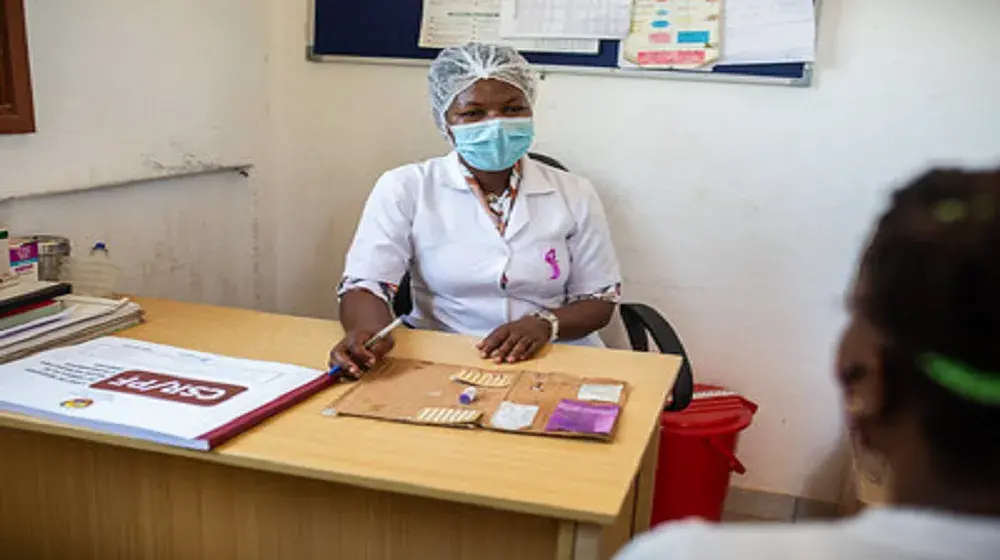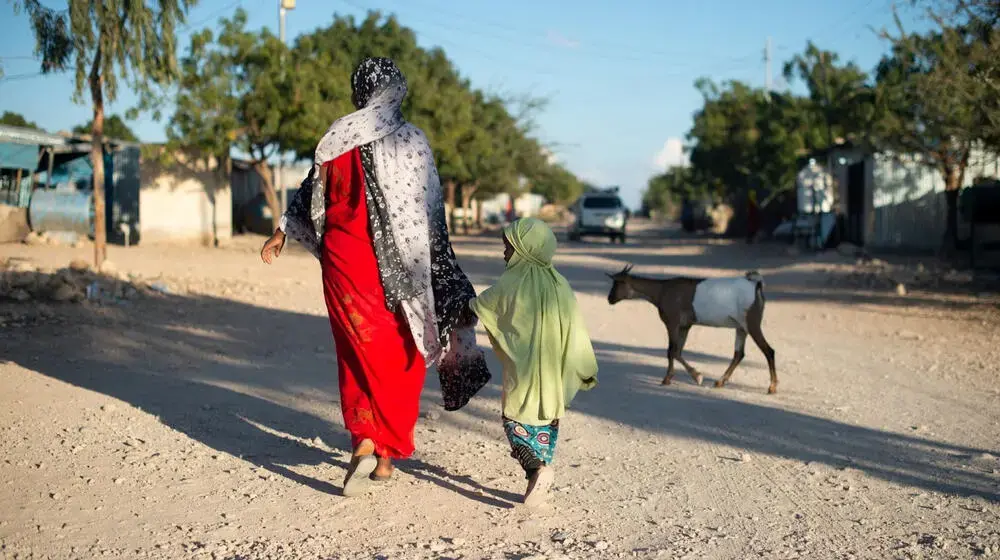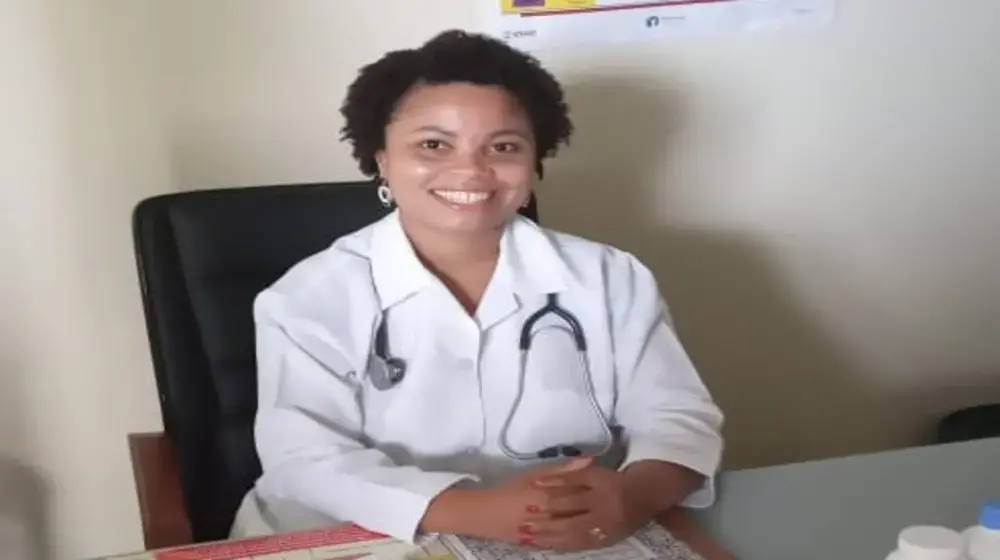Palma, Mozambique - “One of the major challenges is access to medicines and medical care at health facilities,” shares a displaced woman from Palma District in northern Mozambique. As she recounts her personal story, the woman tells UNFPA staff on the ground that many women aim to give birth at health facilities but have to return ‘home’ on the same day due to a lack of space and the precarious situation they face in the health units. She also warns of a potential increase in unwanted child marriages, seen as a last resort for families with ‘many mouths to feed’.
Stories like these are becoming more common, as more than 67,000 people have been forced to flee Palma District following attacks and violence, which began in late March of this year (IOM Displacement Tracking Matrix, 4 June 2021). Among the displaced population, nearly half are children and more than one third are women, with many arriving by foot, bus, and boat into neighboring districts and the provincial capital of Pemba in search of safety and support.
“One of the major challenges is access to medicines and medical care at health facilities”
As is usually the case in humanitarian crises, women and girls have been among the most impacted by the violence in Palma, as well as throughout the northern provinces, making their health, safety, and protection an even greater concern.
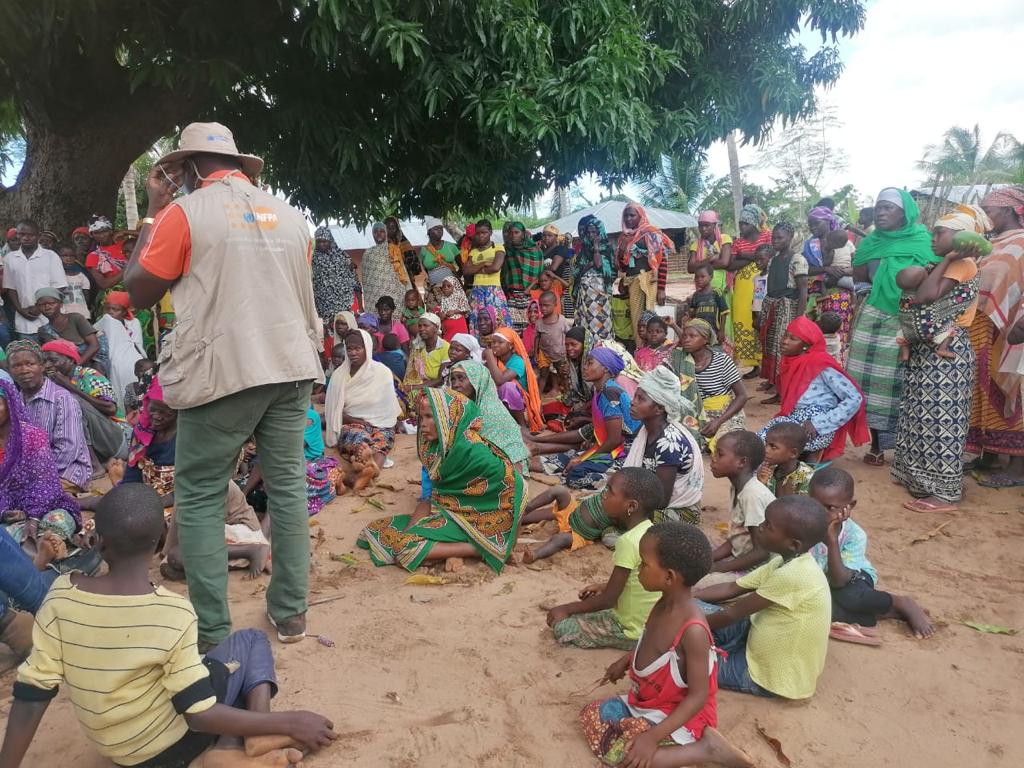
“With girls out of school, and families coping with economic loss and hardship, the risk of child marriage and teenage pregnancies becomes of increasing concern. As girls are at risk of giving birth too young, and potentially being subjected to other harmful practices, continued collective action is needed to mitigate the risk of maternal and newborn mortality or complications, particularly as health facilities throughout Cabo Delgado are closing, are limited in operation, or lack essential staff, supplies and equipment,” shares Andrea M. Wojnar, UNFPA Mozambique Representative.
Led by the Government of Mozambique, UNFPA and its implementing partners are supporting displaced women and girls from Palma district and their host communities with vital and timely care and support.
“Increased humanitarian support for women and girls who lack access to reproductive and maternal health care, and are at risk of sexual and gender-based violence is desperately needed.”
- Dan Onyango-Maina, UNFPA Mozambique Humanitarian Coordinator
Dan Onyango-Maina, UNFPA Mozambique Humanitarian Coordinator based in Cabo Delgado, who traveled to Palma district in February, confirms “the district has been cut off from the rest of the country due to insecurity; increased humanitarian support for women and girls who lack access to reproductive and maternal health care, and are at risk of sexual and gender-based violence is desperately needed.”
Many displaced women and girls are arriving at displacement sites or in host communities with very few personal or essential items, having to flee at a moment’s notice. In response, UNFPA Mozambique has supported the Government to distribute female ‘dignity kits’ to nearly 1,300 women and girls who arrived from Palma in recent weeks in order to support their urgent menstrual hygiene, sanitary, and female dignity needs.
In addition to health and hygiene, the dignity kits offer added protection and safety, with whistles and flashlights to aid women and girls moving at night in host communities and displacement camps, and are accompanied by awareness raising regarding gender-based violence (GBV) prevention and information on available services for GBV survivors.
As women and girls continue to flee violence and attacks and travel throughout and outside Cabo Delgado, ensuring their continued access to life-saving services remains vital. This is also equally important for the communities hosting displaced individuals, whose population growth is putting huge demand on already over-stretched health systems.
Since the start of this year, more than 26,000 women and girls in displacement sites and host communities in Cabo Delgado have received highly-demanded maternal and child health care and family planning services through remote-based mobile clinics, supported by UNFPA and local partners and led by the Government of Mozambique.
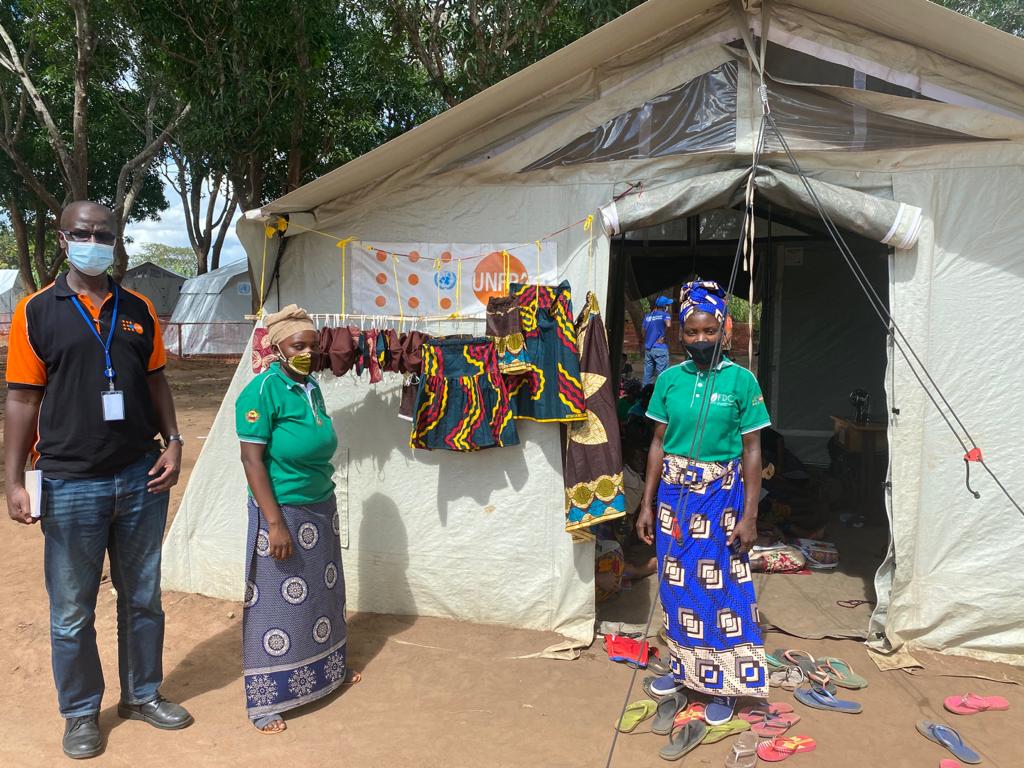
UNFPA also supports the Government to install and run ‘women-friendly spaces’ for displaced women and girls that offer not only health-related information but also counseling and psychosocial support to survivors of gender-based violence and income-generating activities.
UNFPA is appealing for $12 million USD to provide emergency life-saving health and protection services to the women and girls that have been displaced and impacted by the recent attacks throughout Cabo Delgado, including their host communities. To date, 30% of the appeal has been funded.


